If you are an older adult, there is a list of high-risk medications that you should avoid or use with caution. This list is from the American Geriatrics Society (AGS).
We want our members to safely use their medications. This is so you can be as healthy as possible.
Do you have questions about your medications? Ask your doctor or pharmacist.
Products with certain antihistamines
If you are an older adult, you should avoid medications that contain these antihistamines:
- Diphenhydramine (Benadryl).
- Chlorpheniramine (AllerChlor, Chlor-Trimeton).
These medications are often found in over the counter (OTC) remedies for:
- Coughs.
- Colds.
- Allergies.
You should also avoid OTC sleep products like Tylenol PM. These can contain antihistamines like diphenhydramine.
Why to avoid them:
Although you can buy these medications without a prescription, they are not risk-free. They can cause:
- Confusion.
- Blurred vision.
- Constipation.
- Problems urinating.
- Dry mouth.
Muscle relaxants
Avoid muscle relaxants such as:
- Cyclobenzaprine (Flexeril).
- Methocarbamol (Robaxin).
- Carisoprodol (Soma).
- Similar medications.
Why to avoid them:
- They can make you feel groggy and confused.
- They can increase your risk of falls.
- They can cause constipation and dry mouth.
- They can cause problems urinating.
- There is little evidence that they work well.
Key points
If you need help understanding your medications, you are not alone. You can get support. Here are some tips to help you know what to do next.
Always ask your health care provider before you stop taking a medication.
Even if a medication you are taking is in the list above, do not stop taking it before you talk to your health care provider. Your health care provider can let you know what to do. They will guide you on what is best for your health.
Know about the medications you take.
Ask your doctor or pharmacist about the medications you take. Talk to them about any side effects that you could have. If you have any symptoms, ask if they are related to a medication you take or if it may be a sign of another problem.
Review your medications regularly.
You should regularly review all your medications. Do this by talking with your doctor(s) and pharmacist. Speak up about any problems with your medications.
You should report:
- Any side effects.
- Any problems taking medications as prescribed. This includes things like the cost of the medication.
If you have questions, ask them!
Make sure to do these reviews at least once a year. You should also talk to your health care provider about your medications any time you are prescribed a new one.
More information
For more news about medications, please visit our Medications and Your Health page.
Go to our Prescription Drugs and Pharmacy Benefits page to read more about:
- How to find a pharmacy.
- How to fill a prescription.


